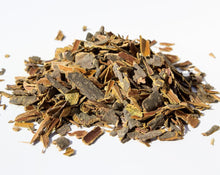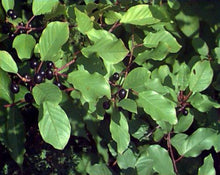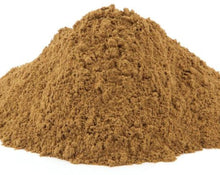Buckthorn more than a Laxative Tea
Buckthorn - Rhamnus Frangula
Origin: Brazil
Used part: Bark
Description:
From the scientific name Rhamnus frangula, the frangula is a shrub or small tree that measures between 2 and 6 meters in height, native to Europe and North America. To develop, it does not essentially need the sun, but requires a lot of moisture, being well developed near rivers or in flooded soils. Their peels should be harvested normally in late spring and early summer and stored for a period of one year before being consumed. With a half-life of between 30 and 50 years, its wood is used to make decorative objects, and its bark is used to prepare a tea.
Health benefits:
Among its properties we find its action as digestive, stomach, laxative, purgative, antifungal, depurative, diuretic and stomach tonic. It is indicated for the treatment of chronic constipation, liver problems, constipation, intestinal parasites, infections in the gallbladder, to increase stomach peristalsis and treat spleen problems.
It is also aid in the complementation of diets, facilitating the process of slimming. It can also be used to treat gallstones, jaundice, hemorrhoids, arthritis, cancer, herpes and pulmonary edema, and productive cough.
Good Herbal Remedy:
- Constipation
- Intestinal parasites
- Gallstones
- Jaundice
- Hemorrhoids
- Arthritis
- Cancer
- Herpes
- Pulmonary edema
Directions:
- Put 2 tablespoons of herb to a liter of water
- Turn off when the water reaches boil
- Cover and leave the solution muffled for about 10 minutes
- Strain and drink
How to Drink:
Take 2 to 3 cups a day.
Contraindications:
It is contraindicated during pregnancy, breastfeeding, constipation over a long period, and in people suffering from ulcers, colitis, and acute intestinal inflammation (such as Crohn's disease).
The side effects of the plant include vomiting if it is consumed in excess. Other adverse reactions may also occur, such as loss of electrolytes (minerals such as potassium), cramps in the gastrointestinal tract and intestinal laziness.
As with most laxatives, it is not advisable to use the frângula over a long period of time, since the constituents, anthracene derivatives found in the plant can irritate the gastrointestinal system, with the risk of loss of minerals. If constipation lasts several weeks, talk to a specialist for advice on the cause of the problem. Always remember to consult a doctor before starting any treatment, even with natural medicines!






